Making Decisions ESL Games & Activities
Decisions, Decisions
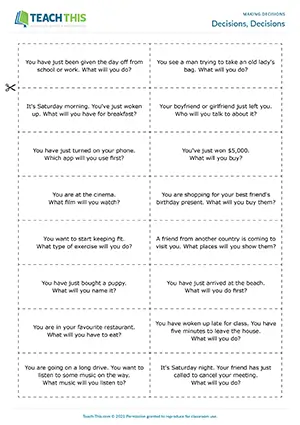
ESL Spontaneous Decisions Game - Speaking: Forming Sentences - Group Work
In this free spontaneous decisions game, students race to make spontaneous decisions with 'will' and give reasons for decisions. In groups, students take turns picking up a card and reading the situation and question to the group. The first student to...
Decisions Race
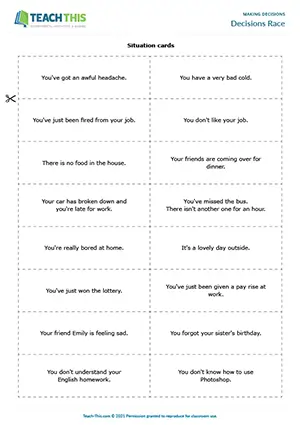
ESL Spontaneous Decisions Game - Vocabulary: Matching - Group Work
In this fun will for decisions game, students race to match spontaneous decisions to situations. To begin, the reader picks up a card and reads out the situation on the card to the players. The players then race to find an appropriate decision card...
Decision Dominoes
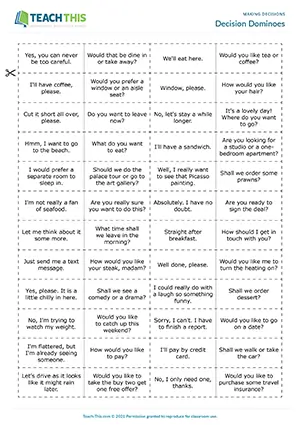
ESL Making Decisions Game - Vocabulary: Matching - Group Work
In this useful making decisions game, students play dominoes by matching questions to decisions or vice versa. The first player puts a domino down either before or after the domino on the table, making sure the question matches with...
Tough Decisions
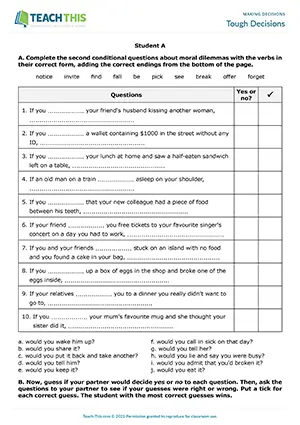
ESL Making Decisions Game - Grammar and Speaking: Gap-Fill, Matching, Asking and Answering Questions, Guessing - Group and Pair Work
In this productive making decisions game, students complete second conditional questions about moral dilemmas and guess a partner's decisions. In two...
Make Up Your Mind!
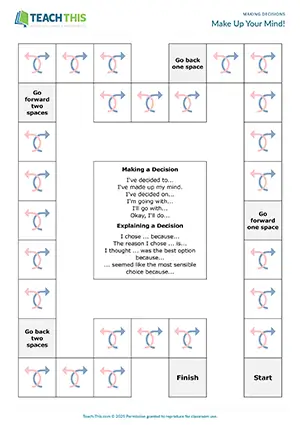
ESL Making Decisions Board Game - Vocabulary and Speaking: Forming Sentences, Freer Practice- Group Work
In this engaging making decisions board game, students practice phrases to make and explain decisions. In groups, players take turns rolling the dice and moving their counter along the board. When a...
